Madeleine Bowe’s – Journey to Becoming a Senior Analyst
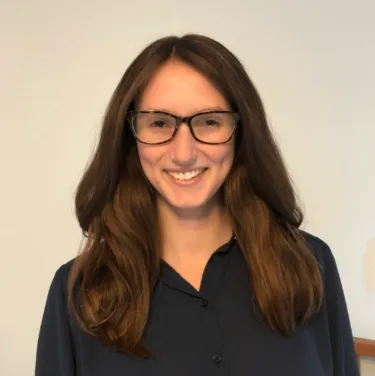
Bowe, a senior analyst at Econ One Research where she analyzes economic data for litigation purposes, recalls her interest in researching and understanding real-world data as a motivating factor during her job search.
“[As an undergraduate] I was interested in jobs that allowed me to analyze real-world data and apply the economic models I studied as an undergraduate,” Bowe explains, going on to state how her current role gives her “…direct access to data across a variety of industries and requires the application of my theoretical knowledge to that data.”
As the prospect of job hunting appears increasingly more daunting, Madeleine recommends talking with alumni and professors about their experiences to gain a better understanding of potential paths and opportunities that exist. Within a field as competitive as economics, students may be tempted to gravitate towards positions with impressive titles offered at well-known companies. Although this may be the correct path for some, Bowe emphasizes the importance of understanding what you are looking for in a job when the search begins.
“As an undergraduate, I tried to figure out what I was looking for in a job, rather than narrowing in on specific companies or job titles early on,”
she explains. With so many great economics classes offered at the University of Vermont, Bowe did not have an issue recalling her favorites.
“My favorite undergraduate courses were Game Theory, Econometrics, and Economic Forecasting. I would also recommend taking an econometrics course and learning how to use Stata or other coding languages.”
Madeleine’s experience offers insight into the world of economic analysis and applying models and theories outside of a college campus.
Max Allen's – Post-Graduate Experience into the World of Data Analytics and Consulting
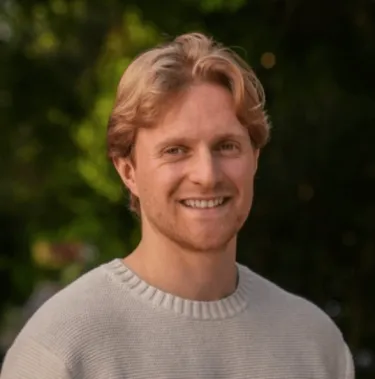
Class of 2021
Graduating from the University of Vermont with a B.S. in Economics as well as a B.S. in Business Analytics, Max Allen used the skills he gained during his undergraduate experience to join Slalom as an Associate Consultant in the Data & Analytics practice. “Econometrics offered a foundation for the analytical skills required to professionally pursue a career in data,” Allen explains, stating how his experiences in economics and business courses he took helped him discover his passion for working with data. “I often noticed myself entering a sort of “flow” state when using econometric methods to draw out correlations between economic trends.” These skills and experiences not only benefited Max in his work within the Data & Analytics practice, however. Allen now works within the Salesforce practice and finds that he still uses the skills he learned at UVM to handle and analyze data in his new role.
Max recommends undergraduate students, especially seniors, focus on networking and developing relationships with professionals to learn about possible paths and opportunities after graduation. “I spent time doing informational interviews with professionals in finance, data science, fintech, and solutions engineering throughout my senior year, and those interviews often helped me figure out careers that I realized I wasn’t really interested in,” Allen recalls, continuing to say, “they also helped me find the career that I was truly excited about, and I wouldn’t have known about it if I hadn’t picked up the phone and asked people questions. These informational interviews helped strengthen my connections with those individuals as well, and they are now a piece of my network that I can always reach back out to.” For students interested in data and consulting specifically, Max's suggestion is to take advantage of all UVM has to offer. “Computer science, data science, econometrics, advanced macroeconomics, game theory, and more can all help contribute to a more holistic view of the data landscape, and employers love to see a diverse range of experience.” Allen also recommends becoming comfortable with SQL, a programming language he believes is crucial for any data-related role.
Max’s experience highlights the importance of putting yourself out there to determine what may or may not interest you, as well as the importance of using the courses and people at your disposal as a UVM student to your advantage.
Anantha Pinak Pendyala – Post-Graduate Experience in the Field of Digital Marketing

Class of 2020
Majoring in economics and minoring in psychology during his time at the University of Vermont, Pinak found himself grow interested in the ways in which he could combine the quantitative aspects he enjoyed, such as data analytics, with more qualitative pursuits as well. This helped inspire him to apply to a Master’s degree immediately following his undergraduate studies. Finishing up his M.S. in Commerce, Business Analytics at the University of Virgina, Pinak began his job search, attending numerous job fairs and doing intensive research on companies and industries of interest. “The preparation portion of the job search is extremely important because it shows prospective employers that you’re disciplined, but at the same time, it gives you a great idea of what you’re looking for from the company specifically and if it’s the right cultural ‘fit’ for you,” Pinak explains, continuing on to suggest that those going through the process should apply to as many jobs of interest as possible. “I’ve found that many things I thought I would enjoy professionally I actually don’t, and things I thought I wouldn’t like I like quite a bit, so explore and apply to everything.” Eventually, Pinak landed in the field of digital marketing where he is currently a Senior Analyst.
In reflecting on his undergraduate studies, Pinak recalls Economics of Globalization, Game Theory, and Econometrics as some of his favorite courses. In regards to Economics of Globalization in particular, a class in which he was a teacher’s assistant, Pinak says it’s, “a class any student (Econ major or not) should take as it’s a very global but realistic perspective on the world.” As a piece of advice for current students going through the job search process, Pinak says to not be afraid of failure. “You will [fail and make mistakes], and you’ll grow better for it, that’s life.” In regards to economics students interested in going into marketing specifically following their graduation, Pinak believes although economics provides a solid foundation of skills essential for the industry, it never hurts to develop Excel and data skills as those are used on a daily basis.
Pinak’s advice to not be afraid of making mistakes or failing throughout the job search and graduate school process is extremely useful to any undergraduate student embarking on their own journey now.
Gabriella Marchesi – Journey into Marketing
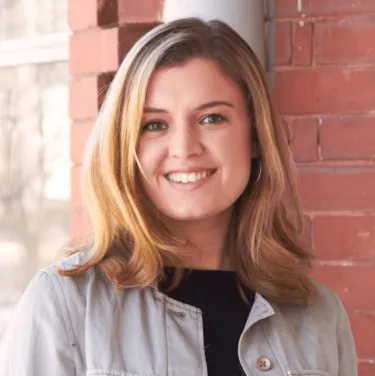
Class of 2020
As an economics major involved in various extracurricular activities, Gabriella spent her time at the University of Vermont not only developing her analytical skills but her creative skills as well. Marchesi took advantage of all the University of Vermont had to offer during her undergraduate experience, reporting for The Vermont Cynic, joining the Community News Service, performing research in the economics department, interning at a lifestyle publication in the marketing department, and more. “As an undergrad, I cast my net wide and was involved in various on and off-campus job opportunities, internships, and clubs,” Gabriella recalls, explaining how, “all of these experiences helped guide my interests outside of the classroom… by taking many different opportunities in business, marketing, and even journalism, I was able to narrow my focus and find what I was passionate about post-grad.” Now working as a Manager of Media Strategy in the marketing industry, Marchesi focuses on advertising strategy and activation on the agency side and in-house at a specific brand. Gabriella has found marketing to be a great blend of right and left-brain thinking. Furthermore, she enjoys the overlap of creativity and analysis she has to use on a day-to-day basis. “Over the course of my career in marketing so far, I've had the chance to help shape the marketing and media strategy for businesses in various retail industries, provide input on creative execution, and implement measurement frameworks,” Gabriella explains. “No day is ever the same, and it's been exciting to have the chance to partner with and work for many awesome brands since graduating.”
Gabriella recommends undergraduate economics students lean into the skills that courses in the department develop to help them stand out in the job search process. “An economics background equips you with the quantitative, analytical, and critical thinking toolkit to succeed and stand out in a lot of industries, including marketing.” Marchesi and other alumni emphasize how focusing on these skills can show companies and employers your strengths and the different ways in which you can contribute to a business.
Gabriella’s experience shows the importance of getting involved in various groups during undergraduate to help learn what careers and industries may interest you.
Daniel Dingwell
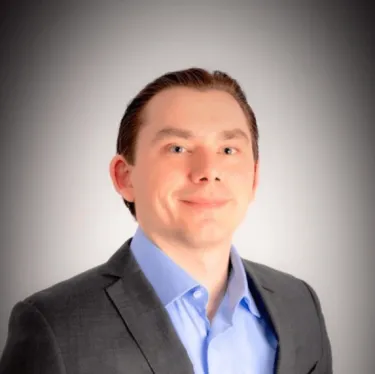
Class of 2019
After completing his degree in economics, Daniel joined the workforce as a Derivatives Analyst with MetLife in 2020 and has since climbed the ranks within the derivatives department. Daniel stated that he feels his degree has given him the skills required to succeed in his field, “Economics as a degree gives you a good balance of technical skills with the liberal arts skills that make you a well-rounded person.” Currently, he is a Chartered Financial Analyst (CFA) Exam Level III Candidate, where his background in economics has provided a strong foundation and encouraged his studies. “If you do come from an economics background, it will put you in a good position to begin studying and understanding that section of the exam.”
At his current position, Daniel often works with insurance business teams and portfolio managers, designing and executing hedges with the use of financial derivatives. Daniel connects with large banks to look for “the best execution for the trade.” One of the best parts of the job for Daniel are the endless learning opportunities, “the industry experts on my team are brilliant people, who provide so much valuable information and are always available to provide ideas and input.” He adds, “as much learning as you can do from a textbook or a video, the best learning happens on the job.”
During his time at UVM, Daniel was an active member of the campus community, participating in the ski club as well as club rugby. He was also an active member of the economics department, where he served as a tutor and as a research assistant, stating that these were invaluable experiences, and encouraging others to take advantage the way he did. “The opportunities available to UVM students, if taken, can help set someone out from the rest of the crowd of job candidates.”
Daniel’s advice for young people looking for their first job is to, “not stress so much about the little things, as this will only spill over into the bigger things…Enjoy your time at college!”
Madison Haas – Post-Graduate Journey in the Field of Consulting
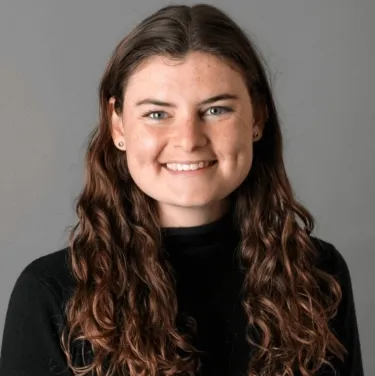
Class of 2017
After completing her degree in economics, Madison entered the workforce as a management consultant. However, driven by her interest in the environment and climate change, Haas became a manager on the climate strategy consulting team, a position she currently holds at 3Degrees, a global climate solutions company. “I always wanted my work to have a positive impact,” Madison recalls, continuing on to explain how, “...based on my degree in economics, I felt that companies and the private sector had a big role to play in solving the climate problem, so I went to work in the consulting field so I could advise companies on their role in addressing this challenge.” Madison’s post-graduate career path was inspired by the intersection of areas that interested her and her educational background, an overlap she encourages all students to explore. One way Haas suggests doing so is by gaining experience. “I did internships during both my sophomore and junior summers that really helped me think about what I wanted to do after graduation, gain real professional experience, and grow my network,” Madison explains, stating that these experiences were extremely helpful in her job search process following graduation. Madison was also able to explore the overlap of environmental action and economics in one of her favorite classes she took at the University of Vermont, Economics of Environmental Policy.
Like many other alumni, Madison recommends students develop their quantitative and qualitative skill sets to help them stand out from other applicants in the job search process. For students interested in entering a field that works towards addressing climate change specifically, Haas believes there are so many ways to get involved, from policy to science to non-governmental organizations. The important thing, she emphasizes, is to find a field that interests you and fits the skills you have. Madison’s advice to students is to “...identify a path you are passionate about, learn more about it (through both research and networking), and build a case for how you can apply your unique skill set to the role.”
Madison’s undergraduate and post-graduate experiences demonstrate the importance of identifying what interests you in a career and gaining experience that will help you succeed in a field.
Marty Harrison – Post-Graduate Transition into Consulting
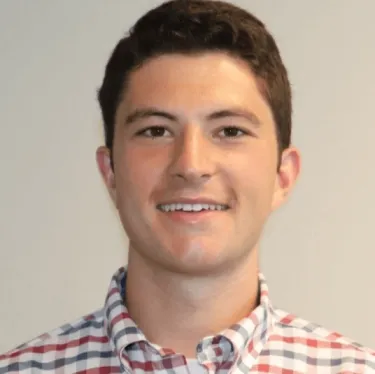
Class of 2017
Following his graduation from the University of Vermont as an economics major, Marty Harrison began working as a data analyst in healthcare logistics before he returned to school to obtain a MBA from Southern Methodist University and a M.S. in economics from Boston College. “After four years of working in healthcare, I enrolled in graduate school to pivot to management consulting,” Harrison recalls, continuing on to explain how after spending years focusing on solely healthcare, he hoped to transition into consulting where he felt he could, “...explore diverse sectors of the economy, delve into various industries, and gain insights into each along the way.” After returning to school and beginning a new career in consulting, Marty eventually found his way to Riveron, where he currently works as a Manager in Business Transformation practice. At Riveron, Marty and his colleagues, “...partner with the office of the CFO, Private Equity firms, and other capital providers to elevate performance across the transaction and business cycle.”
Like many other alumni, Harrison emphasizes the importance of networking in the job search process. In recalling his own post-graduate job search experience, Marty explains how once he narrowed his interests to economics and finance, he, “...researched entry level jobs in those fields, networked with alumni, and focused on developing a relevant skill set to excel as a practitioner in those respective disciplines.” In addition to networking, Harrison recommends undergraduates develop a “tangible, quantitative skill set”, which can offer a competitive advantage in the job search process. Thinking back on his time at UVM, Marty remembers how one of his favorite classes, econometrics, was useful in developing these types of skills. He believes the skills needed to master the statistical models used in understanding and analyzing complex data in this course are valuable in any occupation. Marty also recommends students interested in working in specific industries become accustomed with the tools companies are using to set them up for success as they enter the workforce.
Marty’s story shows the value of considering what interests you when picking a career path, and of not being afraid of change as you gain more experience.
Matthew Sleeman – Experience as an Actuarial Director
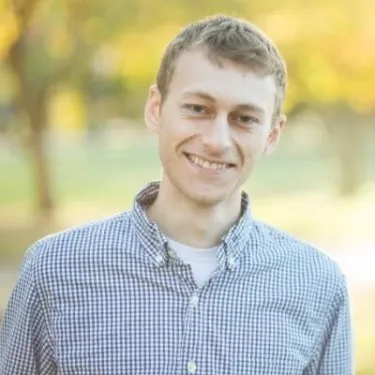
Class of 2011
Sleeman spent his time at UVM studying economics and statistics, fields in which he enjoyed applying the mathematical principles he learned in class to real-world problems. “My favorite economics class was ‘Money and Banking’ with Prof. Gedeon,” Matthew recalls, going on to explain he enjoyed the relevancy of the course as well as Gedeon as a professor. As a statistics student, Matthew gained information that would serve as the basis for his first actuarial exam, which he completed in his final semester. Comparing the actuarial profession to economics, Sleeman explains he, “liked that the actuarial profession was in an applied math discipline -- where communication and strategic thinking are as important as the numbers.” As a current actuarial director, Matthew is able to understand how the role and field have changed since he entered it. “It is harder to get into Actuarial Science than it was when I was just starting out,” Sleeman explains, suggesting students interested in the position, “study for and pass at least one actuarial exam, to prove your level of commitment, and find a way to connect with someone already established in the field, either through an actuarial club, alumni network, or LinkedIn.”
As a general piece of advice, Sleeman suggests undergraduate students interested in a specific field, “...focus on identifying internships and other networking opportunities to get a foothold and learn more about the world outside the classroom.” Matthew emphasizes this is a way to not only understand the necessary skills of a job, but to get an idea of the simple day-to-day a role may entail. An extremely helpful way to accomplish this is by developing professional relationships. “Every job offer I've gotten to date had its origin in a personal or professional connection made in advance,” Matthew recalls. Sleeman also notes that students should make use of the mentors available at UVM. These individuals, whether they are professors or other faculty members, can provide insight into available opportunities and offer suggestions for students.
Matthew’s experience and advice are not only valuable to students interested in the field of Actuarial Science, but also to students interested in developing their networking skills in hopes of gaining a job or internship.
Heather Baldyga
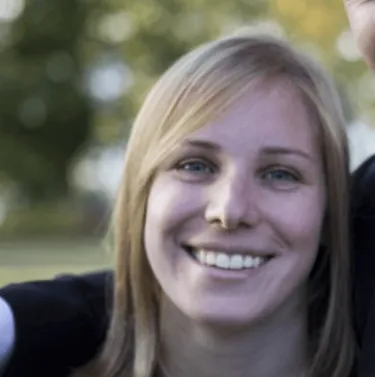
Class of 2007
Majoring in economics and serving as a department tutor during her time at the University of Vermont, Heather found herself an active member of the department. She was also a member of the crew team, and still coordinates the alumni boat.
After graduating in 2007, Heather entered the finance world with Bank of America as an analyst. She recalls how a regular day in this role would include “CEOs and CFOs of large investment companies coming in and learning about which investments they were optimistic about.” Heather added that “this was an awesome experience, interacting with these high-profile individuals as a 22-year-old, right out of college.” Heather eventually moved on from Bank of America to a position in commercial lending to non-profits and small businesses, before deciding she wanted a change of scenery and moving to San Francisco, California.
With her work in California, Heather landed into a thriving culture, where she found all the negative stereotypes surrounding working in the banking world untrue. She also expanded her work with non-profit lending even further, “I would help along the entire process, from when someone came asking for a loan, to when the loan would close, running all of the risk analysis along the way.” She continued, “I was the first point of contact for all of these clients, so if they needed anything they came to me, forming some really wonderful relationships that I still maintain.” Eventually, Heather decided to move back to the East Coast, and First Republic Bank was bought by JP Morgan. Currently, Heather continues her work with non-profit lending with M&T Bank.
Heather has felt throughout her career that her Economics degree from UVM has been an asset to her, stating “It definitely helped me getting my first job, and I’ve worked with a lot of people who were economics majors since then.” She added, “I think it helps develop critical thinking, and understanding of the economy in general.”
To current students, Heather’s advice is to “Try different things, and ultimately, find something you are passionate about. One thing that I love about economics, which I learned from the book ‘Freakonomics’ is that you can apply economics to all sorts of things.”
Paul Smith
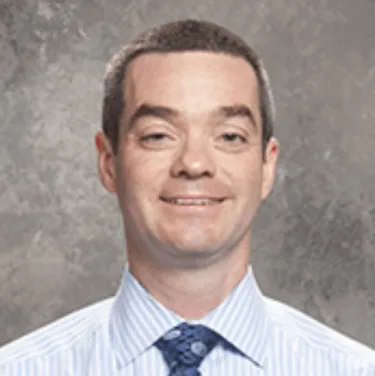
Class of 1991
After graduating from UVM in 1991, Paul attended the University of Wisconsin-Madison, where he completed his PhD in economics. During his time at UVM, Paul states that “UVM gave me the skills I needed, particularly some of the more rigorous, math-based courses, which helped prepare me for the transition to graduate school.” Paul also took advantage of the study abroad resources on campus, spending a semester in Stockholm Sweden, where he “learned so much about the political economy and how countries interact, and that breadth of experience was very transformational.”
Following his completion of graduate school, Paul entered the centralized job market for PhD economists, organized by the American Economics Association (AEA). The AEA has an annual meeting every January where freshly graduated PhD economists like Paul are connected with employers, mainly in academia and government entities. Paul recalls “You’d set up interviews, and you’d go to as many as you possibly could within the three-day conference.” Through this process, Paul landed a position at the US Treasury Department, where he worked analyzing and developing tax policy proposals. Paul remembers this position very fondly, “It was a very interesting position because the US has a wildly complex tax system, where social programs are run through our tax system, and I learned so much.”
After six years with the Treasury Department, Paul moved on to working in the Fed, where he has been ever since, apart from a brief stint in 2010-2011 where he was selected to serve a one-year rotation as a senior economist on the Council of Economic Advisers in the White House. During his time in the Fed Paul has enjoyed working on economic and financial analysis research, which he finds to be both fast-paced and exciting. He has also found a fantastic community of individuals within the workplace. Paul states, “It is super motivating to be in the public sector, where your job has a public service component to it, and I think my coworkers are also motivated by the same drive to make the world a better place. Many of the people I work with are both public-minded and optimistic. Additionally, the economics workplace is very global, with many coworkers bringing different backgrounds and perspectives.”
To anyone interested in following a path similar to Paul's, he recommends “keep an open mind, and to always maintain a growth mindset, where you always focus on learning and developing new skills.”
Louis Dodge and His Transition Into Law
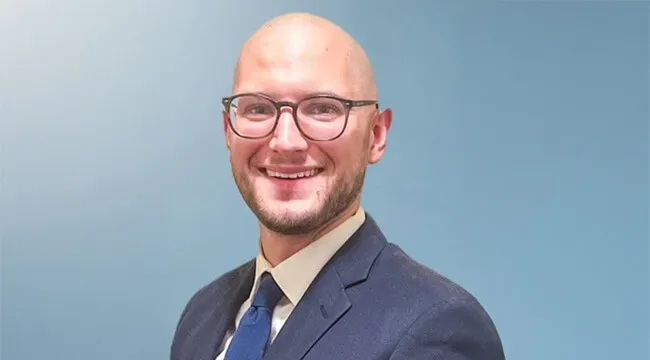
Dodge had experiences during and after college that piqued his interest in the legal field: "First, I helped to start a program at the Chittenden Regional Correctional Facility called SPEAK, which uses public speaking and debate as a tool for education and self-empowerment in correctional settings. Second, after I graduated, I was an Americorps*VISTA volunteer at the Vermont Affordable Housing Coalition, where I worked both directly and indirectly with housing insecure individuals. Many of the folks I worked with were recipients of state and/or federal social welfare programs that subsidized the cost of their housing. In that role, my supervisor was a part-time lobbyist at the statehouse, where he advocated for changes to Vermont law that would create a better support system for those facing homelessness. After getting to work with folks in both of these positions who had been directly and indirectly affected by the law in such different ways, I knew that going to law school was an attractive path for me."
When asking him about his use of the Econ degree, he notes that he hasn't used his economics degree in the traditional sense but "it gave [him] an understanding of financial systems, dynamics, and incentives that was fundamental to many of my later jobs." Dodge took classes of interest such as Stephanie Seguino’s class examining inequality in the United States and Prof. Solnick’s class on game theory. Dodge says "I feel that having a degree in economics gave me essential background knowledge that allowed me to be more successful as I pursued becoming a lawyer."
In his concluding remarks he gives advice to current students: "When I was in college, I wish someone had told me that the most important learning that I would do would happen outside the classroom. The days that I spent teaching debate to incarcerated women were some of the most formative in terms of shaping my career path, and I never would have had that experience through any UVM class. (Although that has changed now, and I will give a shameless plug for UVM’s Liberal Arts in Prison program, which now offers credit-bearing classes for UVM students inside the Chittenden Regional Correctional Facility). My advice is to take risks in your extracurricular activities that expose you to new experiences, perspectives, and opportunities. Don’t be afraid to follow your own path. Even if your colleagues are all excited about a certain career direction, you may find that those choices do not suit your personality or strengths. But most importantly, enjoy your years at UVM, which is a special community of talented students who are, by and large, passionate about making meaningful change in their communities. I still count my UVM roommates and classmates among my closest friends, even seven years after leaving."